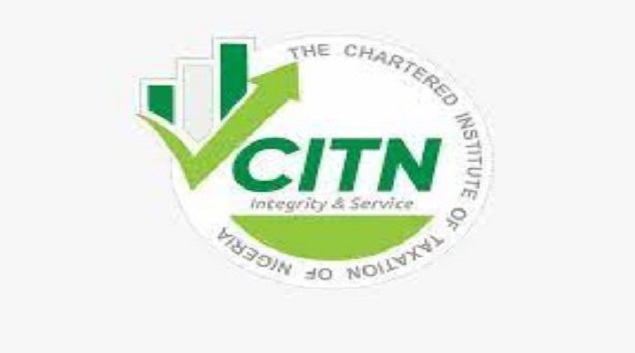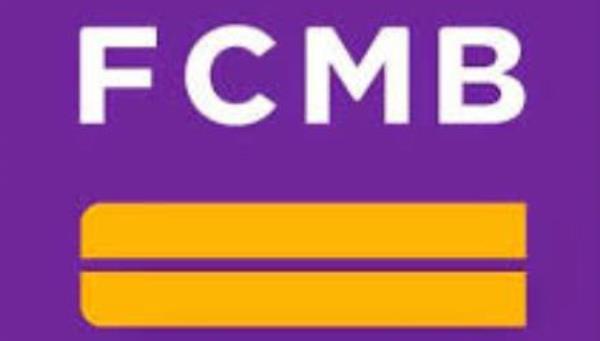E-Financial
Visa Pledges $1bn Towards Africa’s Digital Acceleration

Global tech payments firm Visa has pledged to invest $1 billion in Africa over the next five years. The company made the announcement at the ongoing US-Africa Business Forum, alongside the US-Africa Leaders’ Summit in Washington, DC.

Visa has 10 offices across Africa, from which it supports payments in all 54 countries.
In a statement, the financial services provider says the pledge is to scale its African operations, deploy new innovative technologies and deepen collaboration with partners across the continent.
In addition, the expanded investments will help it enable greater access to digital payments as an entry point for formal financial services for individuals and merchants.
Alfred F Kelly Jr, Visa chairman and CEO, indicates the investments will focus on strengthening the payment ecosystem, supporting digitisation of economies, and investing in upskilling, talent development and capacity-building.
“Visa has been investing in Africa for several decades to grow a truly local business, and today our commitment to the continent remains as firm and unwavering as ever,” says Kelly Jr.
“Every day, Visa supports digital commerce and money movement in every country across the continent, and Africa remains central to Visa’s long-term growth plans.
“We look forward to continuing to work closely with our partners to advance the financial ecosystem, accelerate digitisation and build resilient, innovative and inclusive economies that will create shared opportunity and further spur Africa’s digital economy.”
With an estimated 500 million people in Africa without access to formal financial services, the company notes the investments will also be used to facilitate additional opportunities to expand financial inclusion.
“Africais experiencing an unprecedented digital acceleration, with a growing number ofconsumers, merchants and businesses realising the benefits of secure andconvenient digital payments to fuel commerce and money movement,” states AidaDiarra, senior VP for Visa Sub-Saharan Africa.
“Over the past year, Visa has continued growing our investment in Africa, through new offices, new innovations and solutions, and programmes that are directly supporting financial inclusion. The investment pledge outlines our long-term commitment to Africa and the work we will do to help advance the financial ecosystem.”
“Expanding financial inclusion is critical to long-term economic prosperity, and we are proud to have worked with financial and public sector partners to launch new initiatives such as She’s Next,” adds Leila Serhan, senior VP for Visa in North Africa Levant countries and Pakistan.
“We look forward to continuing to support programmes that advance inclusion and prosperity, while introducing new innovations designed for consumers and businesses across Africa.”
E-Financial
CITN Tasks New Tax Professionals to Shape Fiscal Policies for Efficient Tax System

Mr. Samuel Agbeluyi, the President of the Chartered Institute of Taxation of Nigeria, has charged incoming tax professionals to see their roles as critical to shaping Nigeria’s fiscal policies and building a more efficient tax system.

Agbeluyi gave the charge on Tuesday at the opening of the April 2025 Pre-Induction Orientation Programme held in Abuja.
While addressing participants, the CITN President said the orientation marked not just a personal achievement for inductees but the beginning of a greater national responsibility.
According to him, “Ultimately, it is expected that at the end of this programme and the induction thereafter, the number of tax professionals in the roll call of the CITN and indeed Nigeria would grow.
“Most importantly, more professionals would be added to the struggle of building an efficient and effective tax system in Nigeria, whilst influencing government fiscal policies and adding immense value to various stakeholders.”
Agbeluyi stated that the institute’s charter empowers it to determine the standard of knowledge and skills required to become a professional in the field, adding that the training was a deliberate step towards producing competent tax administrators capable of delivering value in the Nigerian economy.
He also noted that facilitators had been carefully selected from among experienced tax professionals and administrators to guide inductees using practical scenarios.
In her remarks, the Deputy Director of the CITN Tax Academy, Mrs Yetunde Suleiman, said the training was designed to expose participants to key developments in national and international tax administration, as well as emerging issues in the digital economy.
She noted that taxation remained central to Nigeria’s economic development and urged the inductees to take their training seriously in light of growing challenges in the country’s tax system, such as evasion, ambiguity of laws and high compliance costs.
Suleiman said, “There is a continuous need to produce, train and unleash qualified tax professionals to tackle these hydra-headed tax challenges.”
She urged participants to approach the sessions with enthusiasm, noting that the knowledge acquired would prepare them to become ambassadors of the institute and sound professionals equipped to drive reform in the tax space.
E-Financial
FCMB Capital Markets Leads ₦11.85bn GLNG Bond for LNG Plant Expansion

FCMB Capital Markets Ltd. successfully led the issuance of GLNG Funding SPV Plc’s ₦11.85 billion 10-Year Series 2 Senior Guaranteed Fixed Rate Infrastructure Bond, which closed in February. This milestone underscores investor confidence in Nigeria’s clean energy transition.

The bond, issued by GLNG Funding SPV Plc and sponsored by Green Liquified Natural Gas (GLNG) as part of its capital-raising plans, is a key step in financing the construction of a mini-LNG plant with a liquefaction capacity of 200,000 standard cubic meters of gas per day.
The facility will help bridge Nigeria’s power supply gap and offer industries a cleaner, cost-effective alternative to diesel.
The issuance was backed by InfraCredit, an AAA-rated infrastructure credit guarantee firm, and is expected to generate over 500 direct and 2,000 indirect jobs, supporting Nigeria’s sustainable economic growth.
“FCMB Capital Markets remains committed to financing projects that drive clean energy adoption and long-term economic impact,” said Ikechukwu Omeruah, Managing Director, FCMB Capital Markets Limited.
“We appreciate the trust placed in us by GLNG and the invaluable role played by InfraCredit and investors in enabling the successful conclusion of this transaction.”
As gas adoption accelerates in Nigeria, a 2022 Clarke Energy report estimates that manufacturers could save up to 30% by switching to gas from the grid and as much as 80% compared to diesel.
FCMB Capital Markets, a part of FCMB Group, has been instrumental in raising over ₦3 trillion in debt and equity capital for leading corporate organizations in Nigeria over the past five years, reinforcing its position as a key player in the country’s capital markets.
E-Financial
How Nigerian Banks Earned N14.26 Trillion in Interest Income in 2024

Nine leading Nigerian banks collectively generated N14.26 trillion in interest income in 2024, reflecting a 119.55% increase from N6.49 trillion in 2023.

This surge is attributed to the Central Bank of Nigeria’s Monetary Policy Committee raising benchmark interest rates to combat inflation, which reached 34.80% by the end of the year.
Among the banks, Zenith Bank recorded the highest actual income increase, while First Holdco led in percentage growth. Access Holdings, UBA, GTCO, Stanbic IBTC, FCMB Group, Fidelity Bank, and Wema Bank also reported significant gains.
However, a portion of this income was derived from non-performing loans, raising concerns about the sustainability of these earnings.
In contrast, the manufacturing sector faced operational costs of N2.5 trillion, with high interest and energy expenses straining growth. Industry leaders have called for a halt to further rate hikes, warning of potential risks to the real sector’s recovery.
This financial dynamic underscores the contrasting fortunes of Nigeria’s banking and manufacturing sectors. What are your thoughts on these developments?

 Telecom2 days ago
Telecom2 days agoDigital Transformation Remains Africa’s Gateway to Economic Advancement – Adumike

 Telecom2 days ago
Telecom2 days agoPAFON 2.0: Experts Discuss Pathways to Boost Financial Inclusion in Nigeria

 General News2 days ago
General News2 days agoEFCC Clarifies SCUML Certificate Misuse amid CBEX Ponzi Scheme Scandal

 E-Financial2 days ago
E-Financial2 days agoCBN, NGX Group Defend Economic Reforms at Nasdaq

 Telecom1 day ago
Telecom1 day agoMTN Nigeria Faces Class Action Lawsuit over Alleged Data Mismanagement

 Telecom1 day ago
Telecom1 day agoNigeria Hits 1 Terabit Internet Traffic Milestone

 General News1 day ago
General News1 day agoFG to Introduce New Tax Credit Scheme to Replace Pioneer Status Incentive

 E-Financial1 day ago
E-Financial1 day agoFCMB Capital Markets Leads ₦11.85bn GLNG Bond for LNG Plant Expansion



























